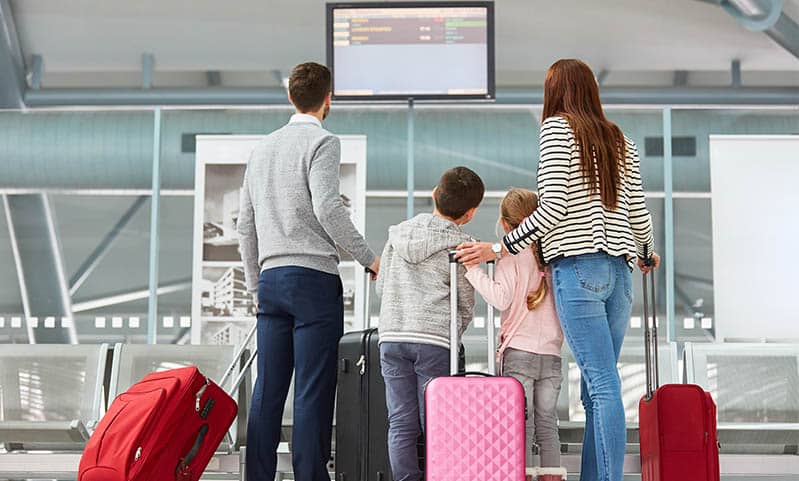When you board an airplane, what rights do you have, and what rules can the airline impose?
Latisha Rowe said that an American Airlines crew told her to cover her strapless romper, or she could not fly from Jamaica to Miami. Dr. Rowe, who wrapped herself in a blanket to board the plane, later took to Twitter to express her displeasure. She implied that race may have had something to do with the crew’s stance. In response, American Airlines apologized to Dr. Rowe and refunded her money. “We are proud to serve customers of all backgrounds and are committed to providing a positive, safe travel experience for everyone who flies with us,” the statement added.
In 2017, the National Association for the Advancement of Colored People issued a travel alert advising people of color not to fly AA because of the airline’s recent history of “disrespectful, discriminatory, [and] unsafe practices.”
Airline Passenger Rights: The Two Overarching Concerns
Ever since the dawn of commercial aviation, safety and convenience have been the two major principles in Federal Aviation Administration rules and regulations. These two principles often conflict, which is why airline passenger rights disputes are relatively common.
Since it is a common carrier, an airline has a legal duty to safely deliver its passengers and cargo from Point A to Point B. This duty obviously includes safe operation. Failure in this area could have legal consequences.
This duty also includes a responsibility to eliminate, or at least minimize, disruptions in the passenger area. Any passionate display, such as a physical fight or a heated argument, certainly falls into this category. An uncomfortably display, such as a person’s attire or personal hygiene, may fall into this category.
Additionally, airlines must be convenient, or at least as convenient as possible. Some inconveniences, such as weather delays, are unavoidable. So, the airline has no legal responsibility to provide compensation, like a hotel room for the night. They may do so anyway, in the name of customer service, but that voluntary act does not create a legal duty.
Other inconveniences, such as overbooking and removal, are avoidable. If passengers are inconvenienced in these ways, the airline has a duty to provide compensation. The amount of compensation varies in each situation. For example, if an avoidable flight delay causes Raphael to miss a connecting flight, he may be entitled to additional compensation for his additional loss.
As a compensation baseline, bumped passengers are legally entitled to 200 percent of a one-way ticket’s face value if the delay is less than two hours. The baseline goes to 400 percent if the delay is longer.
Passenger Rules
Aviation has changed a lot since lawmakers passed the Air Commerce Act in 1926. But for the most part, passenger conduct laws have not changed too much, even in the wake of 9/11.
Under federal law, airlines can remove passengers, or refuse to let them board, in the following situations:
- Violent insanity,
- Communicable and severe disease,
- Possession of a dangerous weapon, and
- Intoxication.
That last bullet point is probably the biggest one, and it is also reflective of the other points.
Mild intoxication is not grounds for removal. The passenger poses no safety threat and the inconvenience factor is very high. At the other end of the spectrum, a person who is “drunk and disorderly” is clearly a threat to passenger safety.
On a related note, it may be legally possible to exclude people with certain disabilities if (and this is a very big “if”) the airline had no notice whatsoever about the person’s condition.
The one major 9/11-related change is interfering with a flight crew. It is a federal felony to “assault[], threaten[], or intimidate[] a flight crew member or attendant.” These prohibitions are very broad. Essentially, federal prosecutors could press such charges if a passenger does anything to make a crew member feel uncomfortable.
Because of this law, a comply now and complain later approach is usually best. Even if the crew is clearly in the wrong, it may be better to leave the plane and suffer inconvenience than to remain and face federal criminal charges.
The “No-Fly” Lists
There are basically two no-fly lists in New York. If a name is on either of these lists, the airline may deny passage, no questions asked.
First, there is a behavior-related no-fly list. Repeated misbehavior, as outlined above, may justify refusal to allow a person to fly. In simple terms, if Tim is drunk and disorderly when he boards a particular flight, the crew may legally exclude him from the plane. If Tim is in a similar state when he boards a subsequent flight, the airliner may permanently exclude him from the carrier.
After 9/11, the U.S. government compiled a security no-fly list. Over a million people are on the Terrorist Screening Database, many of them because they are “suspected terrorists.” That’s a very vague term. So, a Virginia federal judge recently ruled that the security no-fly list was unconstitutional. The matter, which is still being litigated, may eventually wind up before the Supreme Court.
At Napoli Shkolnik PLLC, we are deeply concerned with individual rights. That’s why we represent accident victims on a nationwide basis.
